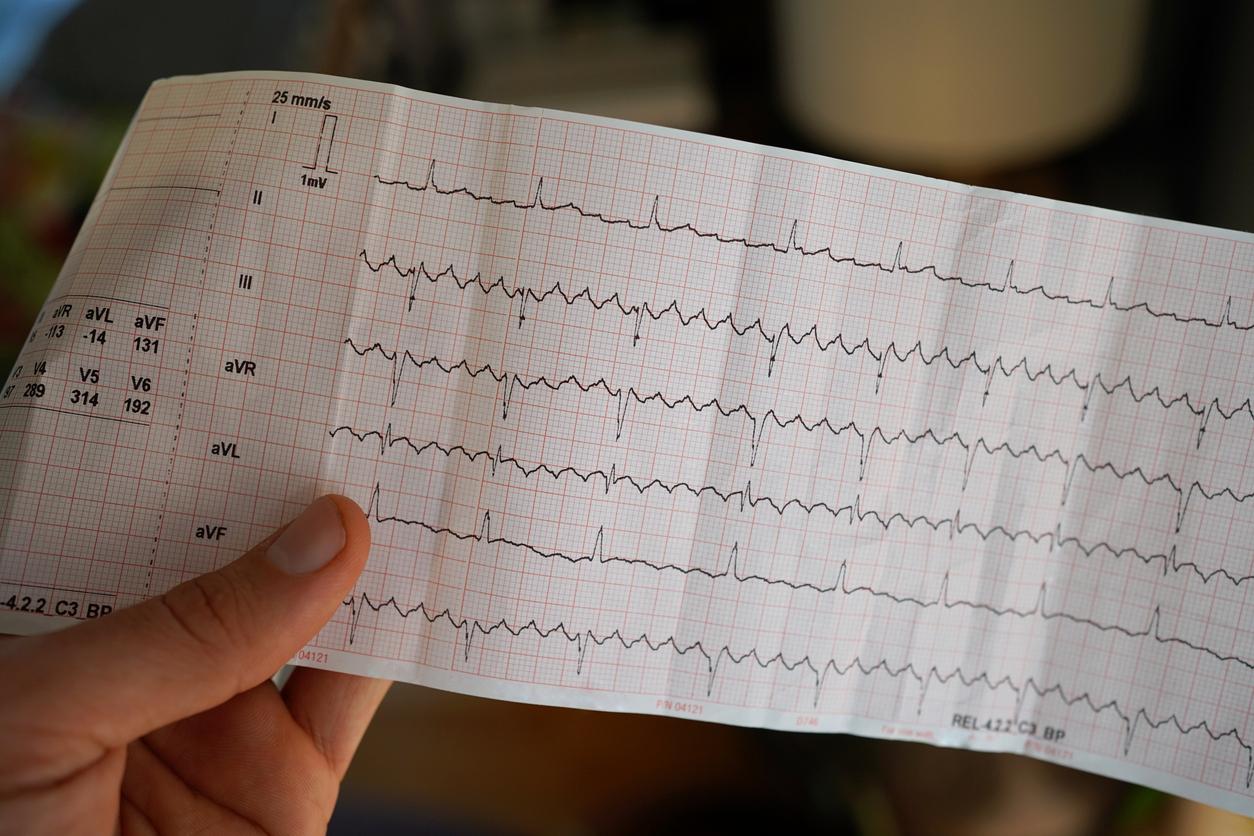Common among the elderly, atrial fibrillation causes heart rhythm abnormalities increasing the risk of cerebral infarction. Focus on the management of this pathology.

- Very common among the elderly, atrial fibrillation is a heart rhythm disorder.
- Atrial fibrillation increases the risk of ischemic stroke.
- In the elderly, anticoagulant treatment is indicated to prevent the risk of cerebral infarction.
Also called atrial fibrillation, atrial fibrillation is a heart rhythm disorder whose prevalence increases with age. In one in three cases, this pathology is asymptomatic, which can make it difficult to identify by health professionals. However, atrial fibrillation must be identified, because it exposes you to a higher risk of ischemic stroke, or cerebral infarction.
Atrial fibrillation, a common pathology in elderly patients
In France, nearly two thirds of patients affected by atrial fibrillation are elderly. Over the age of 80, one in ten individuals is affected by this heart rhythm disorder. “The consequences of atrial fibrillation can be serious due to the formation of clots inside the heart, which can then be sent into the cerebral circulation and thus obliterate a cerebral artery. This phenomenon can be the cause of ‘a cerebral infarction’, explains Professor François Puisieux, geriatrician and professor of geriatrics at Lille University Hospital. Stroke can cause deficits – particularly hemiplegia, paralysis affecting only one side of the body – that impair quality of life.
It is therefore important to identify atrial fibrillation early, in order to prevent these risks. Many treatments are effective in treating it. This rhythm disturbance can in particular be corrected, in order to return to a normal sinus rhythm with a very reduced risk of stroke. However, this treatment is not the preferred option for elderly patients whose atrial fibrillation has set in on an already aged heart. It is therefore difficult to permanently maintain normal sinus rhythm.

Atrial fibrillation: what are the treatments indicated for the elderly?
In the elderly, the doctor opts instead for anticoagulant treatment, which reduces the risk of ischemic stroke by 70%. “It must be taken with care, because it carries a bleeding risk”, warns the geriatrician. Before adding: “the benefit-risk ratio, in other words the advantages in terms of stroke prevention and the disadvantages in terms of hemorrhage, is however greatest in the elderly.”
Another benefit of anticoagulant treatment: it helps preserve the cognitive functions of the elderly person. Atrial fibrillation sends clots to the brain that can cause a cerebral infarction, which can lead, in the long term, to the appearance of neurocognitive disorders impacting memory.
“It is therefore essential to diagnose atrial fibrillation in the elderly and to implement anticoagulant treatment. We now have new anticoagulant treatments which are probably more effective and present less bleeding risk than old medications”concludes Professor François Puisieux.















